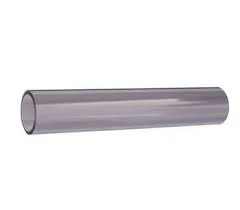Dec . 17, 2024 21:58 Back to list
hdpe plastic sheet roll
Understanding HDPE Plastic Sheet Rolls Benefits and Applications
High-Density Polyethylene (HDPE) is one of the most widely used types of plastic in the world, renowned for its strength, durability, and versatility. Among the many forms it takes, HDPE plastic sheet rolls have gained significant traction in various industrial and commercial applications. This article explores the characteristics, advantages, and applications of HDPE plastic sheet rolls, illustrating why they are a preferred material in many industries.
Characteristics of HDPE Plastic Sheet Rolls
HDPE is a thermoplastic polymer made from petroleum. The structure of HDPE consists of long chains of monomers that give it a high density and impressive strength. When it comes to sheet rolls, HDPE is typically produced in various thicknesses and widths, allowing for customization to meet specific requirements. These sheets are available in both smooth and textured finishes, offering options for different applications.
One of the standout characteristics of HDPE plastic sheet rolls is their remarkable resistance to impact and stress. This makes them suitable for both indoor and outdoor use. Additionally, HDPE exhibits excellent chemical resistance, making it ideal for environments where exposure to harsh substances is common. It is also waterproof, which adds to its versatility in a multitude of settings.
Benefits of Using HDPE Plastic Sheet Rolls
1. Durability HDPE sheets are incredibly durable and can withstand significant wear and tear. They are resistant to cracking, splitting, and fading, which makes them suitable for long-term use.
2. Lightweight Despite their strength, HDPE sheets are surprisingly lightweight. This attribute simplifies transportation and installation, reducing overall project costs.
3. Cost-Effectiveness While durable, HDPE sheets are also economically advantageous. Their long lifespan means fewer replacements and repairs, resulting in savings over time.
4. Environmental Impact Many manufacturers now produce HDPE sheets from recycled materials, making them a more sustainable choice. Additionally, HDPE is recyclable, which aligns with modern environmental goals.
hdpe plastic sheet roll

5. Ease of Fabrication HDPE sheet rolls can be easily cut, welded, and shaped to fit specific needs. This adaptability makes them an excellent choice for custom applications across various industries.
Applications of HDPE Plastic Sheet Rolls
The versatility of HDPE plastic sheet rolls allows them to be utilized in numerous sectors, including
- Construction In the construction industry, HDPE sheets are often used for liners in landfills, ponds, and reservoirs. Their waterproof properties make them ideal for managing water and preventing leaks.
- Food Industry The food and beverage sector frequently employs HDPE due to its non-toxic properties. HDPE sheets can be used for food packaging, countertops, and cutting boards, where cleanliness and safety are paramount.
- Signage HDPE sheets are an excellent choice for outdoor signage due to their UV resistance and durability. They can withstand harsh weather conditions while maintaining vibrant graphics.
- Packaging HDPE is commonly found in the packaging of various products, including bottles, containers, and industrial packaging. Its resistance to moisture and chemicals protects the contents effectively.
- Agriculture In agricultural settings, HDPE sheets can serve as ground covers, liners for water tanks, or as part of greenhouse structures, aiding in plant growth and resource management.
Conclusion
HDPE plastic sheet rolls have established themselves as an invaluable asset across numerous industries due to their impressive properties and wide applicability. Their combination of durability, cost-effectiveness, and environmental sustainability makes them a leading choice for businesses looking to implement reliable and efficient solutions. As industries continue to evolve, the demand for HDPE plastic sheet rolls is likely to grow, reinforcing their status as a critical material in modern production and construction practices. Whether you're considering HDPE for specific projects or simply seeking to understand its advantages, the case for utilizing this remarkable material is compelling.
-
Durable Glossy PVC Rigid Sheet | Premium High-Shine Panels
NewsAug.26,2025
-
Durable PP Rigid Sheet: Lightweight, Chemical Resistant Solutions
NewsAug.21,2025
-
PVC Grey Sheet for Extraction: Chemical Resistant & Durable
NewsAug.19,2025
-
Durable PVC Pipe Fittings for Plumbing & Irrigation Needs
NewsAug.18,2025
-
HDPE Steel Belt Reinforced Spiral Corrugated Pipe | High Strength
NewsAug.17,2025
-
HDPE Pipe Fittings: Durable, Leak-Proof Solutions
NewsAug.16,2025

